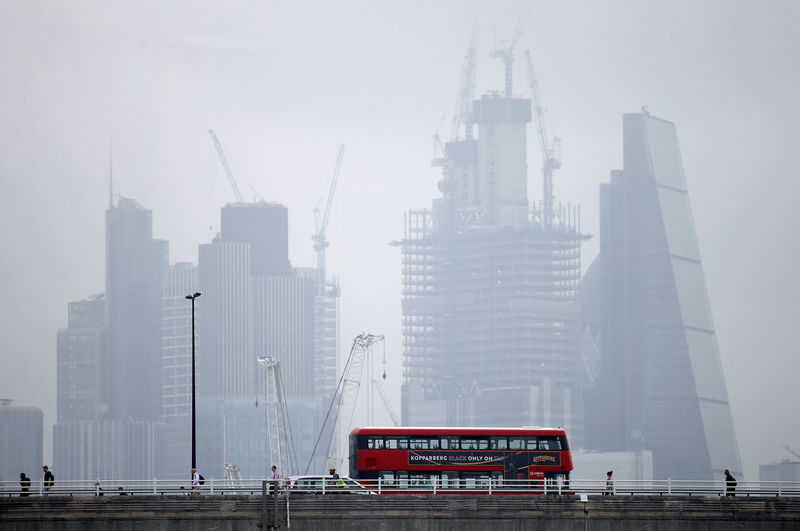LONDON (Reuters) - Britain's economy is on course to lag behind its international peers again this year as it nears its departure from the European Union, according to new forecasts from the Confederation of British Industry, an employers' group.
The world's fifth-largest economy looks likely to grow by 1.4 percent in 2018, according to the CBI, weaker than projected growth in the euro zone of 2.2 percent and in the United States of 2.8 percent.
Britain went from being the fastest-growing economy in the Group of Seven to its slowest last year as the value of the pound fell after the Brexit vote in 2016 and companies turned cautious about investment.
The CBI argued before the Brexit referendum that staying in the EU would be best for Britain's economy
The CBI's forecast for Britain's growth rate this year represented a slight reduction from its previous forecast of 1.5 percent, reflecting the economy's weak start to the year during unusually cold weather, the group said.
Growth looks set to slow to 1.3 percent in 2019, when it will again lag behind the euro zone and the United States, the CBI said.
With less than a year to go before Britain is due to leave the EU, the CBI described the risks to the economy as "skewed to the downside", especially if talks between London and Brussels on their new post-Brexit relationship turn sour.
Uncertainty over Brexit continued to weigh on corporate investment, but the CBI said a growing number of its members planned to spend more on automation, robotics and training to circumvent skill shortages.
The CBI's chief economist, Rain Newton-Smith, said such technologies were becoming much more affordable so a lot of businesses were starting to adopt them.

"But at the same time there's a huge amount of uncertainty in a lot of sectors about what our future relationship with the European Union will be," she said. "That means it's just harder to make those very long-term, capital intensive decisions. Businesses are still holding back."